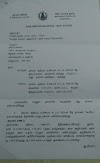7th Pay Commission – Centre to Cushion Pay Panel Impact – The strategy involves pushing back the date of implementation of the pay commission award so that the government saves on payment of allowances.
The seventh pay commission, headed by Justice AK Mathur, last month submitted its report to Finance Minister Arun Jaitley. The recommendations, once cleared by the Cabinet, will lead to a hike in salaries of central government employees and pensioners with effect from January 1, 2016.However, there is no certainty that it would happen even in the next six months, according to Rakesh Arora, managing director and head of research, Macquarie India.
“And still there is no guarantee that it is going to be implemented in the next six months, it is still for the government to really consider.
“So what we are saying is from the timing it can happen by middle of 2016 and not be pushed out too late.”
The financial burden of the 7th Finance Commission recommendations is huge but the government has planned to cushion its impact by opting for its implementation in stages and not at one go.
The strategy involves pushing back the date of implementation of the pay commission award so that the government saves on payment of allowances. The headline financial impact figures that the commission gave while making its recommendations are enough to unnerve anyone. The recommendations, if implemented fully, are expected to increase the total spending by the government on salary and pensions by a whopping Rs 1.02 lakh crore.
The strategy that the government is working on is aimed at limiting the increase in salary payout to Rs 55,000 crore for the next financial year beginning mid- 2016.
The pay panel has said that the salary increase, as per the recommendations, should be applicable from January next year. If the report is implemented from a later date, the government will have to pay only salary arrears for the previous months. In effect, these arrears will not include allowances.
The burden of enhanced allowances is expected to be Rs 29,300 crore annually. The other component of the government’s cushioning plan is to roll over some payments to financial year 2017-18.
Of the total additional burden of salary and allowances stemming from implementation of pay commission’s recommendations, around 28 per cent will be borne by the Railways from its own resources. For servicing a higher pension payout, the burden on the general budget will be Rs 33,700 crore. The overall salary and pension bill for the central government, excluding railways, is expected to be Rs 1.88 lakh crore this fiscal.
Of the total, around Rs 88,000 crore will be on pensions only. In the next financial year, the total outgo is expected to be higher at Rs 2.4 lakh crore.
The government has said that, despite the pay panel burden, it would stick to the target of bringing down the fiscal deficit to 3.5 per cent of the gross domestic product in 2016-17 from 3.9 per cent in this financial year.
According to estimates, the burden of the pay panel recommendations will be equivalent to 0.4 per cent of the gross domestic product in 2016-17.
So to keep the deficit within the target, the government may be forced to prune expenditure and aim for higher non-tax revenues from streams such as disinvestment or auction of natural resources.
Source: NDTV







